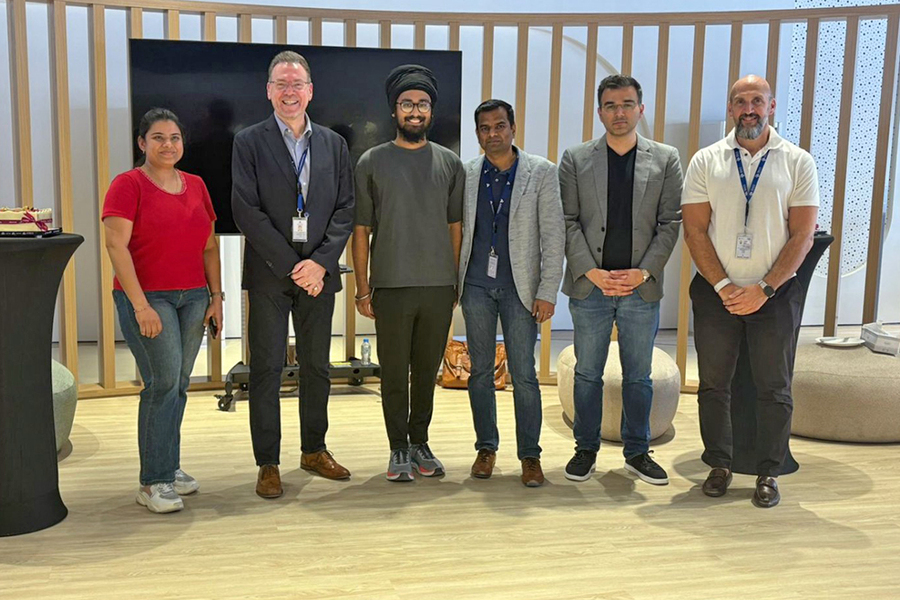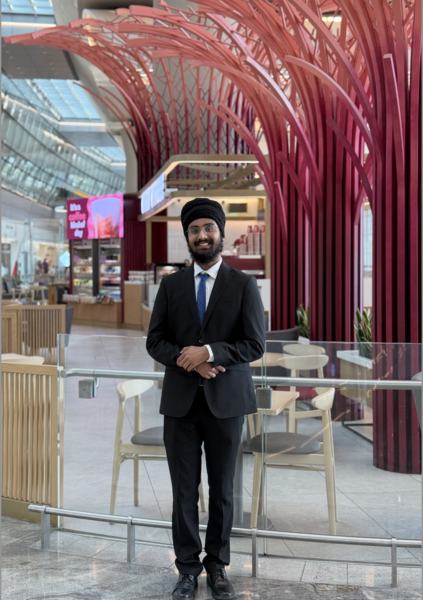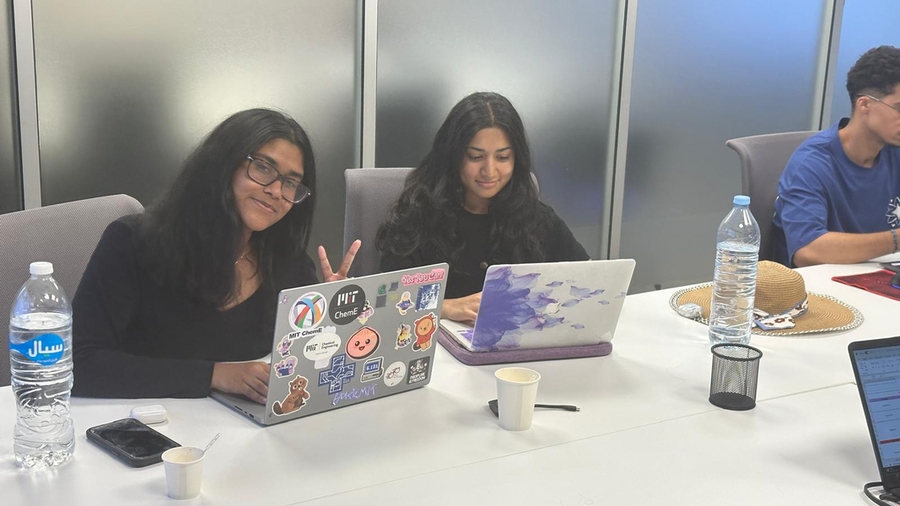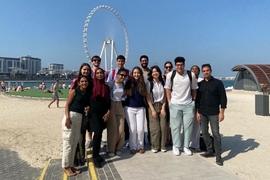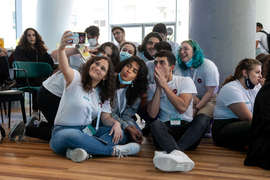Audio
This summer, nine MIT students worked across the Middle East through the MISTI Arab World Program.
“At MISTI Arab World, the most impactful learning occurs when students venture beyond their comfort zones and experience the richness of a dynamic region,” says Maye Elqasem, program administrator of MISTI Arab World. “Our students return not only with new technical and professional capabilities, but also with a greater sense of self, resilience, and global awareness.”
Since it launched in 2014, more than 200 students have participated in MISTI Arab World, providing them with essential international perspectives while connecting them to meaningful work.
“Each internship is a bridge connecting MIT to the region, bridging theory with implementation,” Elqasem says.
Seeing the Middle East for herself
One of this year’s students was junior Khadiza Rahman, a chemical and biological engineering major. Born in Bangladesh and raised in Queens, New York, Rahman hadn’t left the United States in over a decade. She spent 10 weeks in Casablanca, Morocco, working at the OCP Group, the world’s largest phosphate mining company.
Rahman’s interest in the region was sparked last year as a student in class 21H.161 (The Modern Middle East), a course taught by Pouya Alimagham.
“It was an eye-opening class. Through scholarly works, my opinion of the region changed and I realized biases that I held. It made me want to go to the Middle East to see it for myself,” she says.
Her internship was with Pixel, a sustainability startup incubated at OCP through Le Mouvement, an internal initiative where employees pitch business ideas at a demo day (similar to those often hosted at MIT) and then receive seed funding and the workday space to launch them.
“Pixel aims to create an integrated system for helping farmers around the world get better crop results,” Rahman explains.
“I essentially combined genomic, climate, and environmental data to create a model to provide actionable forecasts that could be used for policy decisions. For example, if we were to receive the climate data, it could predict the biological richness and diversity of the soil.”
The experience reinforced her interest in engineering and management while also challenging and inspiring her in unexpected ways. For example, her coworkers began each day with tea and conversation. This “human-centered approach” is something she hopes to carry into her own career.
For housing, Rahman was paired with another MISTI intern at an apartment in Casablanca’s financial center. “At the beginning, I was a little afraid to venture outside my comfortable apartment, but the real experiences you get from MISTI come from going out and exploring,” she says.
One highlight was a hike in the Ourika Valley outside Marrakech. “I wasn’t sure if I was physically prepared for a long hike,” she admits. “We climbed a really high mountain in the Ourika Valley. It was scary at first, but it turned into an amazing experience, with incredible views of the mountain range and waterfalls. I stood there at the peak and realized that I should never have doubted myself in the first place.”
That’s a lesson that Rahman says she’ll remember amidst whatever challenges her future career throws her way.
Video: MISTI
Harnessing AI to improve the passenger experience
MIT senior Amitoj Singh, an electrical engineering and computer science major, joined MISTI after taking four courses on Middle Eastern history and politics. His internship with Abu Dhabi Airports combined his regional interest with his technical expertise and gave him a new sense of direction.
Raised near Los Angeles, Singh had never left North America. He first connected with MISTI in January 2025 through doing a short internship in a startup in the MITdesignX accelerator in Dubai. After helping a fintech company streamline United Arab Emirates mortgage applications using artificial intelligence, he sought out another, longer work opportunity.
Elqasem worked closely with him to finalize a placement with Abu Dhabi Airports Smart Airports Initiative.
“My skill set fit what the airport was looking for, and it turned out to be a perfect match,” Singh says.
MISTI also paired him with mentor Rajeet Sampat, a 2017-18 MIT Sloan Fellow and vice president of strategy at Abu Dhabi Airports.
“My day-to-day work in the office involved working on an independent use-case, which is developing an application of machine learning and AI software to perform predictive data analysis at Abu Dhabi Airports,” Singh says.
The Smart Airports Initiative uses biometrics and AI to streamline travel — from facial recognition that replaces stressfully long check-ins to real-time virtual simulations of airport operations.
“For example, if an airline experiences an unexpected flight delay, air traffic controllers would be able to seamlessly visit their virtual environment dashboard to make an immediate decision about which terminals the aircraft can park at when it arrives, eliminating further delays,” Singh explains.
Despite the fact that he was directing various airport divisions, Sampat took his mentoring responsibility seriously, meeting with Singh weekly, helping him to clarify strengths and identify aspects of work that could bring long-term fulfillment.
“Very inclusive, collaborative, and startup-inspired,” is how Sampat describes his office’s culture.
For Singh, the most valuable lesson was learning to work in a global environment with colleagues from many backgrounds and specialties. “When I got stuck, there was always someone to ask for help in finding a solution,” he says. “They were highly welcoming and collaborative.”
Singh is still exploring career paths, but discovered he seeks work that connects him to others and “ultimately be able to use college as a journey that will eventually help me to give back to others more.”
Sampat offered him advice: “You can be somebody who enjoys coding and putting things together, but there’s another side of things in the corporate world. I need people with strengths like you to also strategize and lead the way.” To push him, Sampat invited Singh to join the AI team in shaping future strategy. “That is how a coder turns into a leader,” he says.
To learn more about applying or partnering with the program, visit the MISTI Arab World website.
